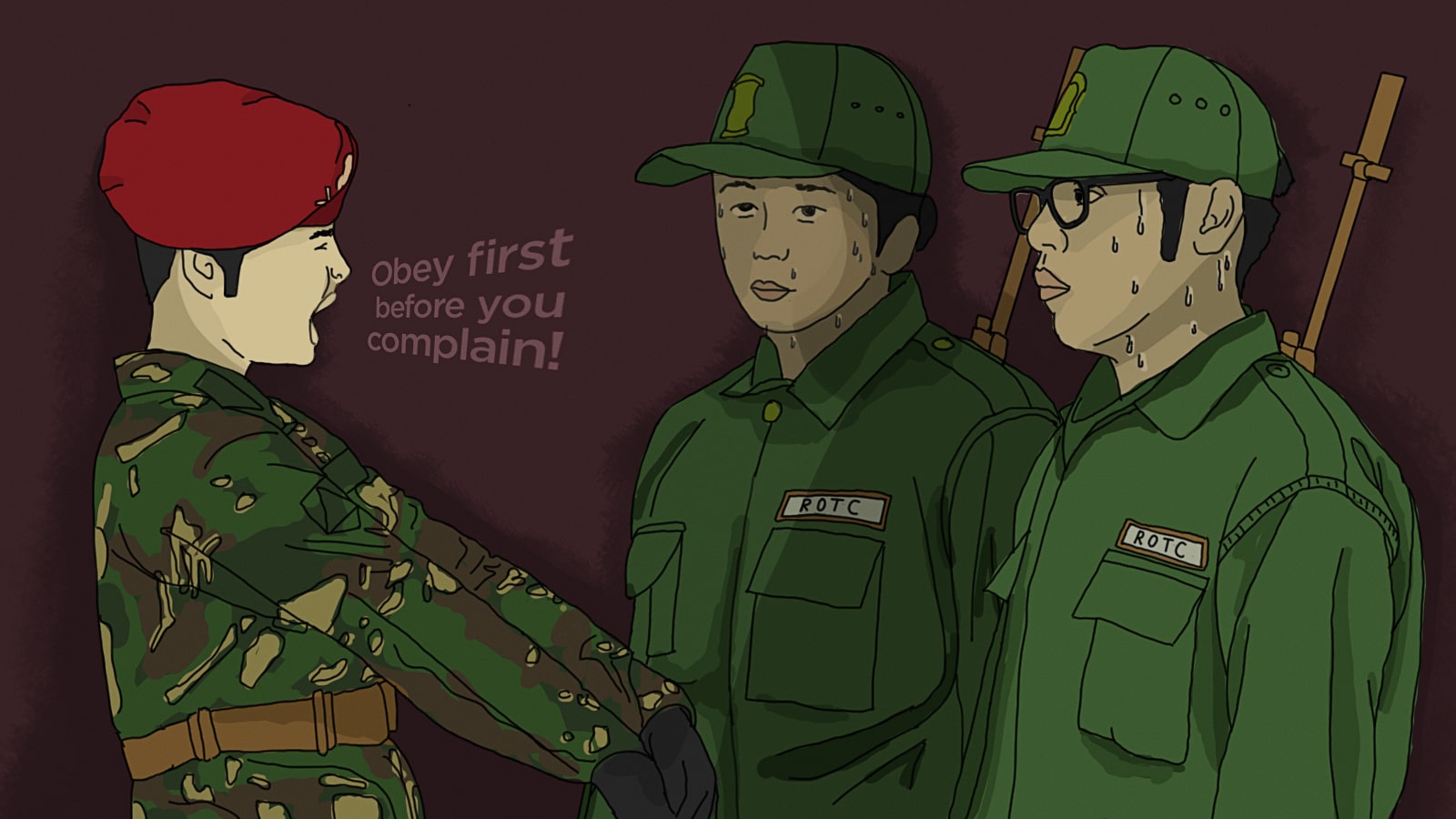It’s been more than 20 years since it happened, but memories of the traumatizing afternoon in Sampaloc, Manila, remain fresh in Angelo De Alban’s mind.
Clad in starched military fatigues on a sweltering Sunday in 1999, the University of Santo Tomas (UST) student ran laps around the campus park with classmates as part of his Reserved Officers’ Training Corp (ROTC), then a requirement for all Filipino men. An eagle-eyed student officer watched their every move.
While the squad was exhausted and thirsty, the officer had made it clear: no one would be getting water. After the run, however, he changed his mind.
The panting, sweat-drenched men could quench their thirst, the officer said — if they drank from the park’s murky pond.
The fact they also weren’t allowed to get water from elsewhere made it an easy decision.
“We drank the water from the pond,” De Alban told Coconuts Manila in a matter-of-fact tone in April.
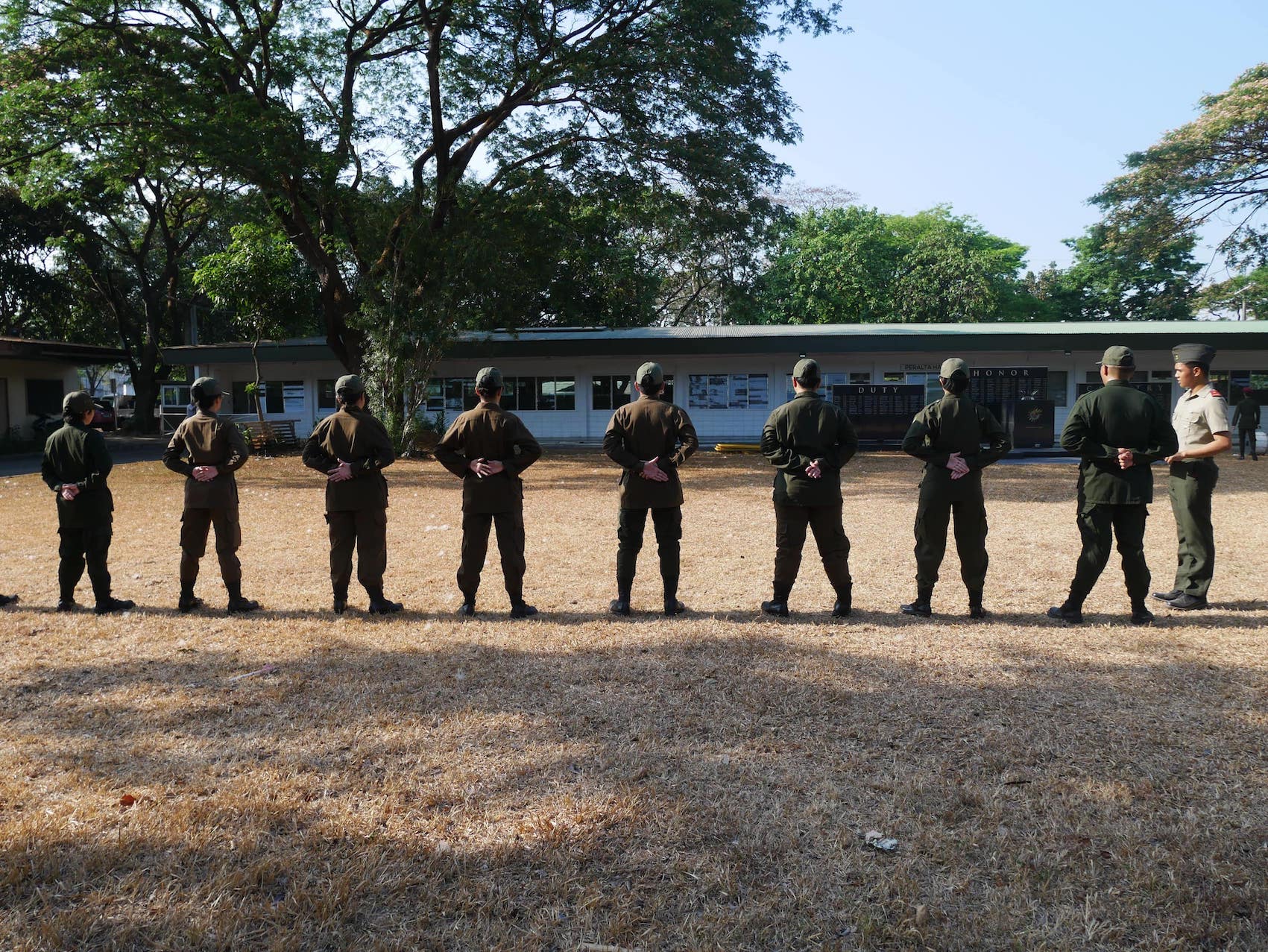
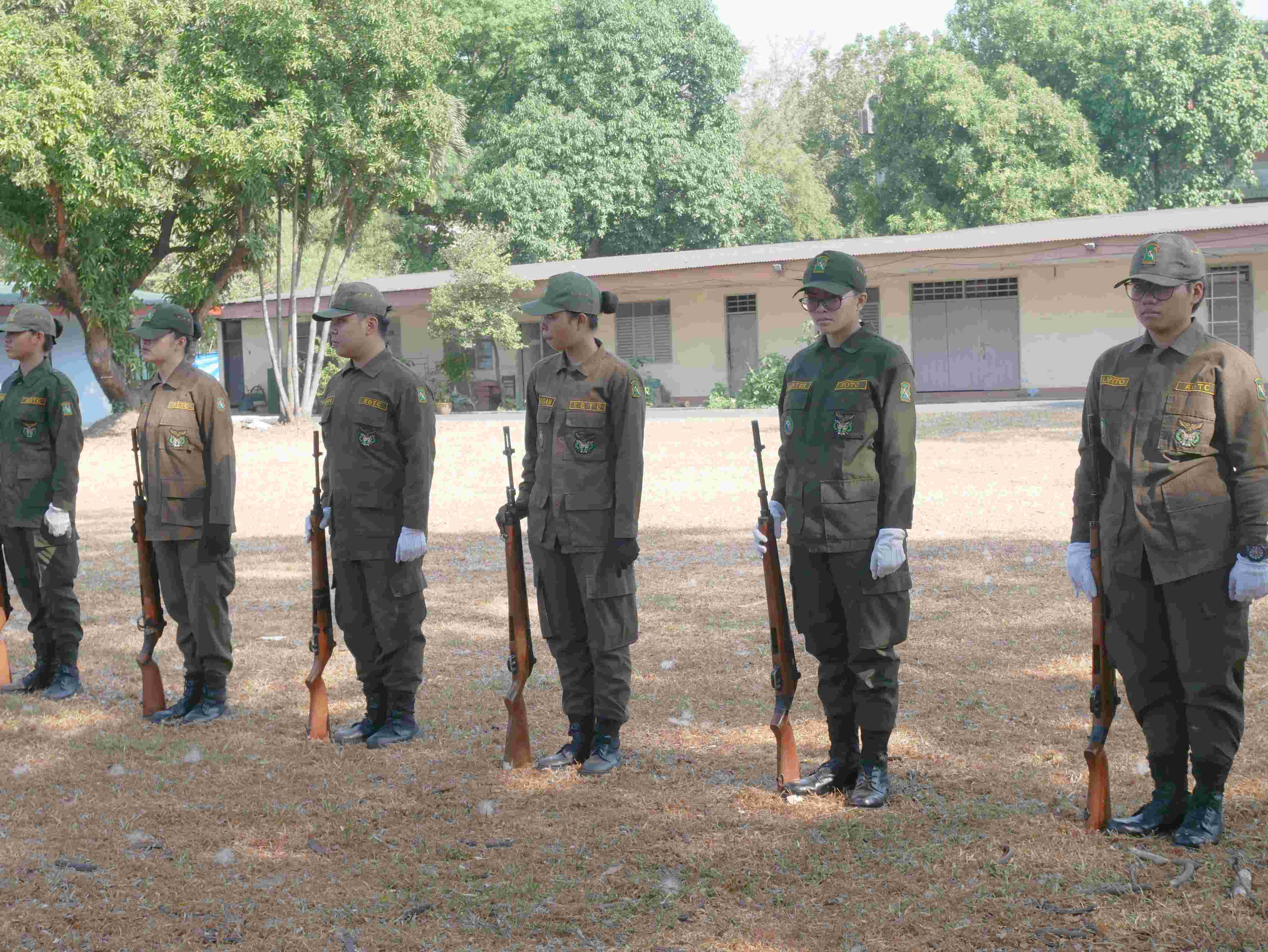
While many would see De Alban’s ROTC experience as abusive, an incident barely two years later would make that particular bit of hazing seem inconsequential.
In 2001, Mark Welson Chua, a UST ROTC cadet was killed by fellow officers — suffocated, with tape wrapped over his nose and mouth — after he filed a complaint at the Department of National Defense (DND), alleging that his peers were engaged in extortion and corruption. He was 19 years old.
The public outcry over the case led the Philippine government to make ROTC optional for students in 2002. But that is about to change if President Rodrigo Duterte has his way.
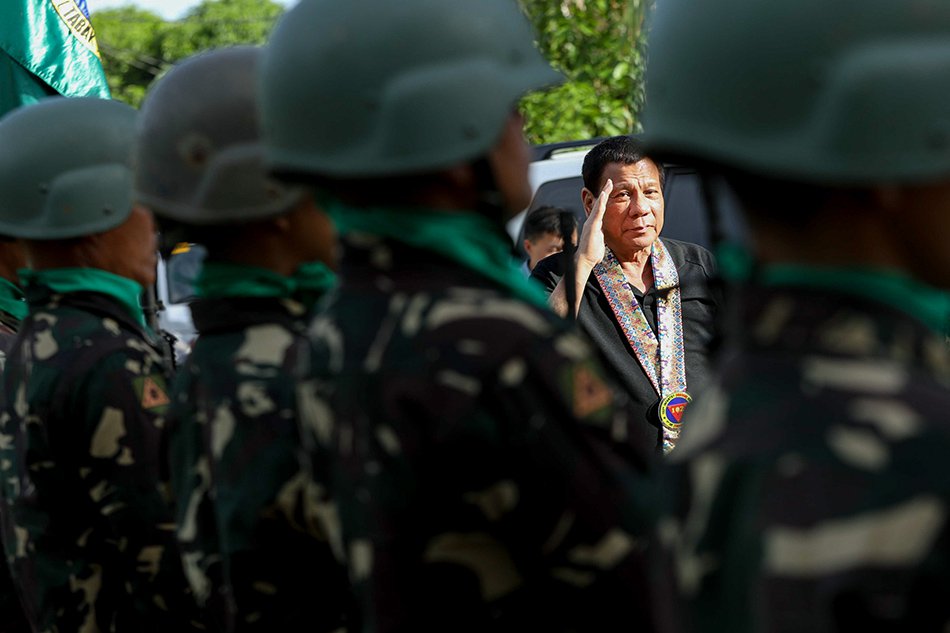
Duterte has called for the re-imposition of mandatory ROTC for all Grade 11 and 12 students — formerly first and second-year college students under an old system — as a way of both teaching patriotism to teenagers and expanding the nation’s number of reservists. Women’s participation would be mandatory for the first time ever as well.
First floated in 2017, his vision took a major step toward reality in February when the House of Representatives approved House Bill No. 8961, or the ROTC Bill, which reinstates it as a requirement. The Senate version of the legislation, meanwhile, was certified as “urgent” by the president just this month.
ROTC’s looming return has put supporters and critics of the bill on a collision course.
On the one hand, the government has declared it a necessary move, pointing to what they say is a dwindling number of desperately needed reservists.
Those who oppose it, however, say mandatory ROTC duty brings with it a slew of issues — including emotional distress and sexual harassment — that outweigh any perceived benefits.
Obey first before you complain
Mandatory ROTC, the government insists, has a rock-solid legal basis. Armed Forces of the Philippines (AFP) spokesperson Brigadier General Edgard Arevalo recently told Coconuts Manila that it is based on Article II Section 4 of the 1987 constitution.
“The prime duty of the government is to serve and protect the people,” the article in question reads. “The government may call upon the people to defend the state and, in the fulfillment thereof, all citizens may be required, under conditions provided by law, to render personal military or civil service.”
According to Arevalo, mandatory ROTC duty falls comfortably within the government’s right to “call upon the people to defend the state.”
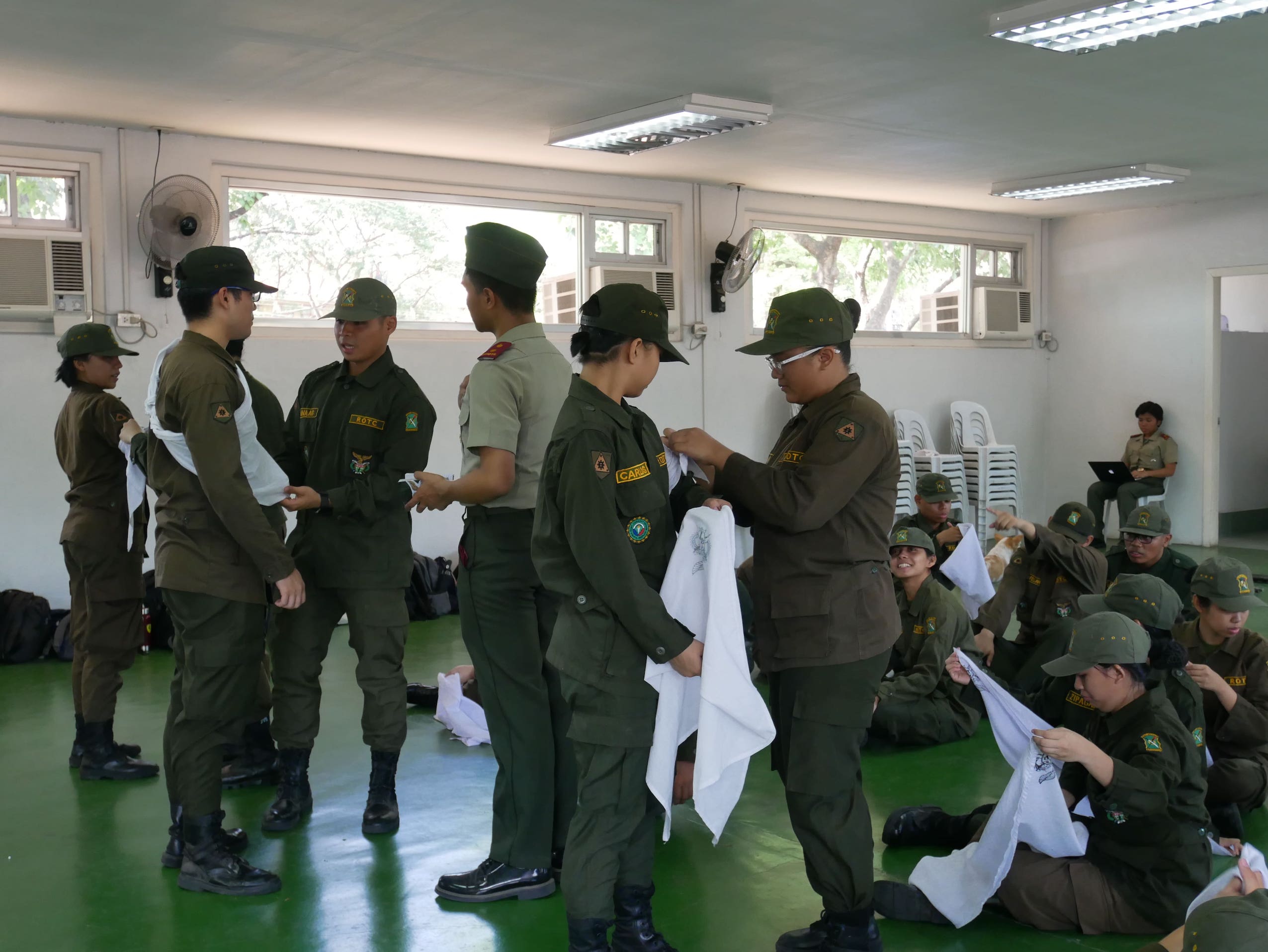
“The ROTC program should be there to prepare our citizens, specifically the youth, who are already at the right age. It should be there so they have the right skills and can become competent [if they need to defend the state],” he said in a mix of Filipino and English.
De Alban, who now works as a lawyer and a teacher at UST, prefers the program remain optional, saying its implementation has been too often marred by abuse. Hazing, in particular, continues to be a problem, even in the current all-volunteer system.
In 2014, two ROTC cadet officers were dismissed from the Polytechnic University of the Philippines after allegedly beating up a student who failed to attend an ROTC-related event. The parents of a student at De La Salle University filed a complaint in the same year after their child was allegedly hazed during training.
De Alban himself was subjected to beatings in the late 1990s. One of his more memorable maulings came after he was given his Muy Leal (“very loyal”) pin, UST’s official seal. The beating, he said, was part of cadet officer tradition.
“They pinned the seal on my chest and pounded it repeatedly. So it got embedded in my skin,” he said. The incident left a scar on his chest visible to this day.
Some punishments were of the more nausea-inducing variety. In one instance, student officers ordered De Alban’s platoon to go through several rounds of exercise. When it ended, they were told to share a bottle of water that De Alban estimated to hold about 500 milliliters.
De Alban stood at the back of the line. From his vantage point, he could see how quickly the water was disappearing as it was passed toward him.
“When the bottle reached the middle of the platoon, it was almost empty. The officer told us that if the bottle arrived empty at the end of the platoon, we would have to go through another round of exercises,” he remembered.
“You know what, when the bottle was handed to me, it was almost full again. So what was inside that bottle?” he asked, clearly implying it was saliva.
“The officers kept laughing through it all.”
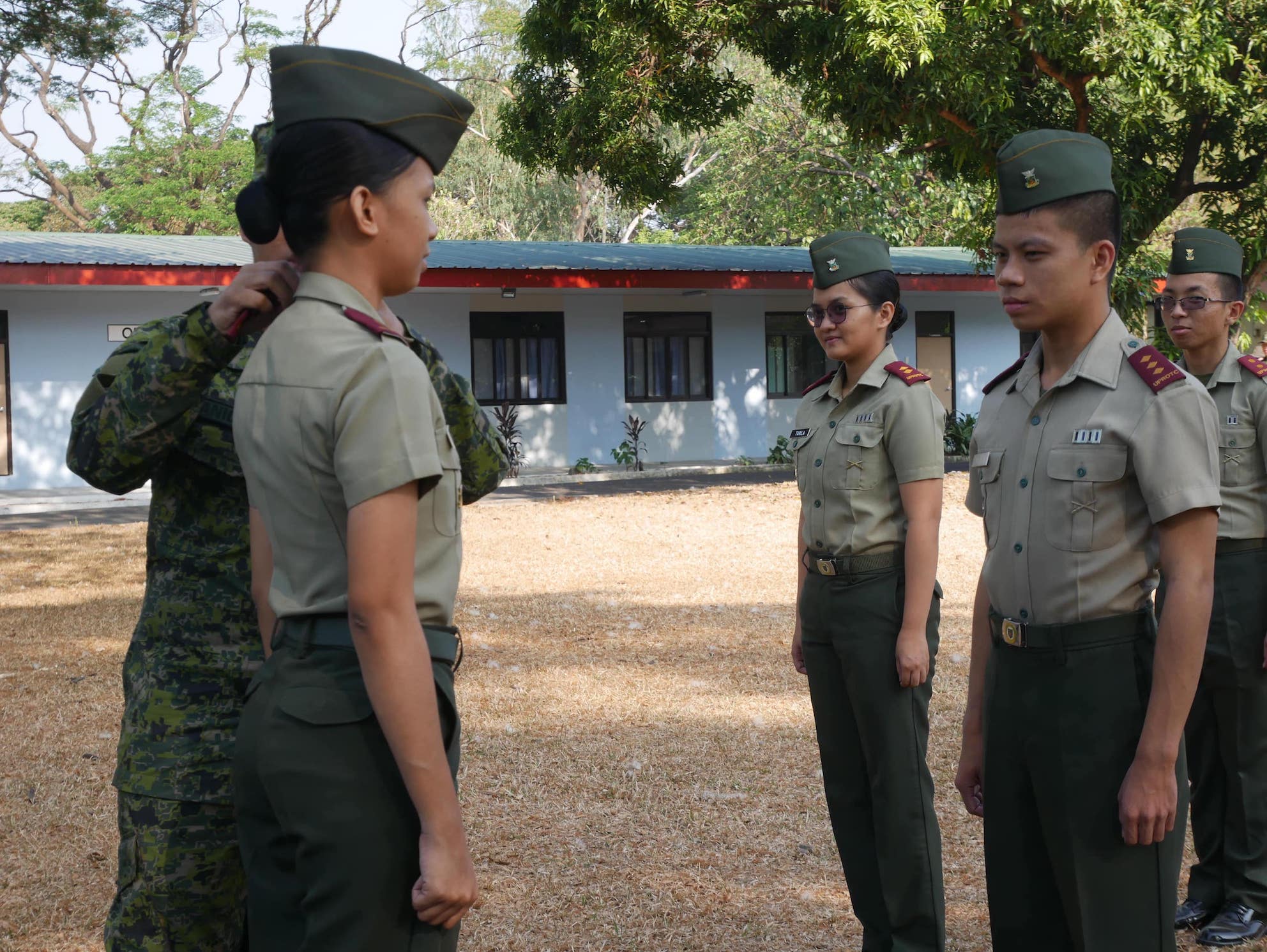
Female ROTC participants in the program, who were first given the opportunity to join after it was downgraded to one of three options for the mandatory National Service Training Program (NSTP), were also no strangers to abuse.
One woman, who spoke to Coconuts on condition of anonymity for fear of retaliation, said that when she was in the program, a group of middle-aged military officers asked her and some classmates to wear mini-skirts to an “audition” for a position in the ROTC’s female-only Corps of Sponsors.
The “handsy” antics that followed saw more than one of the older men wrap their hands around the students. While the unwelcome touching left her shaken enough to quit ROTC shortly thereafter, she chose not to file a formal complaint against the military officers for fear that they would retaliate, a concern she says remains very real.
Another former cadet, this one at the University of the Philippines Diliman, told us she and other students were routinely humiliated by student officers while going through training in 2014. In particular, she remembers the time they were forced to dance at an assembly as jeers filled the room.
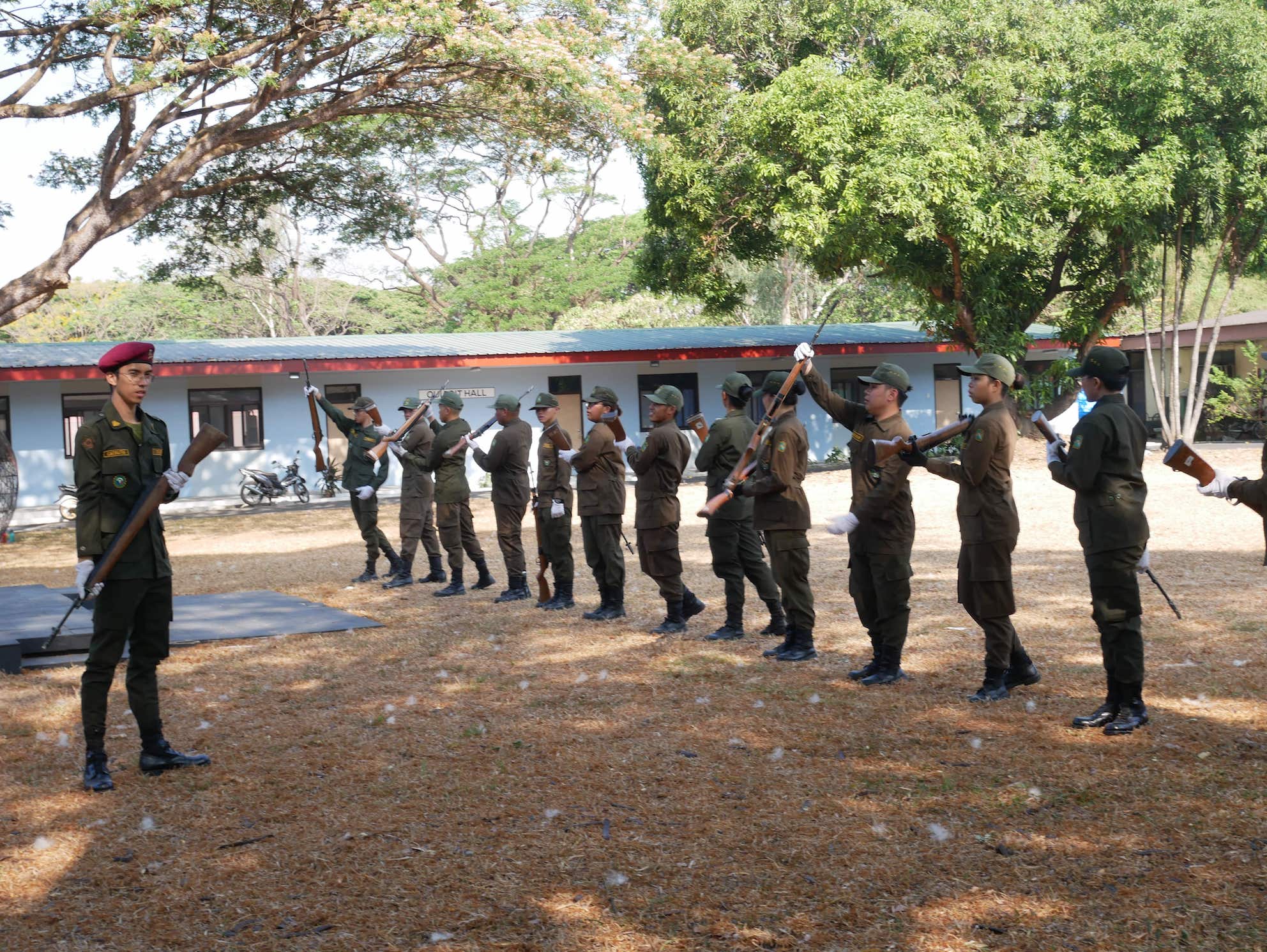
“It was all for their entertainment. If you have emotional issues, you may not be able to handle it and may end up withdrawing from training. That’s what some of my classmates did,” she recalled.
Despite sticking with the program and ultimately obtaining a high rank, she says she can’t support the re-imposition of mandatory training.
“There’s already a lot of power plays going on right now,” she said. “How much more when it becomes mandatory?”
A massive clean up
While the military is aware that abuses exist, Brig. Gen. Arevalo insists it’s the program’s implementation that is the problem, not the program itself.
Doing a better job of vetting officers will eliminate most of the previous issues, he believes, explaining that only military officers with “clean records” will be assigned to schools as ROTC commandants going forward.
“We will choose those who are exemplars of good character; they shouldn’t have any criminal or administrative cases,” he said. “These people [who will be chosen] are true role models because we are saying that ROTC is meant to instill discipline, good character, and patriotism.”
He added that the AFP will also set up a grievance mechanism to allow students and parents to file complaints should abuses occur.
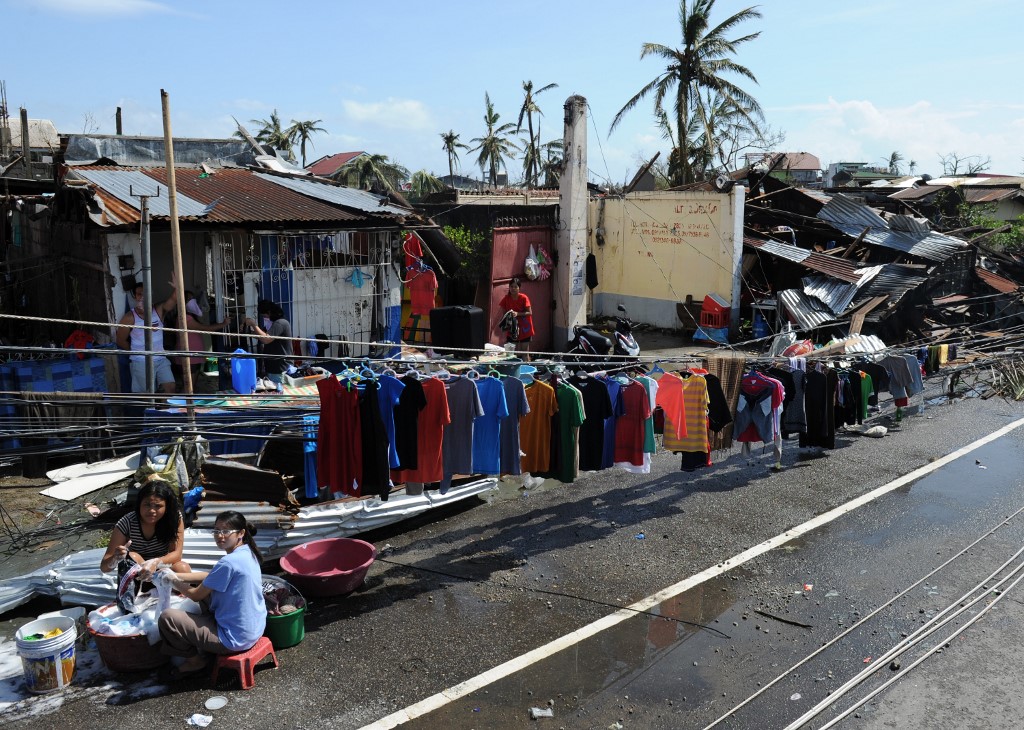
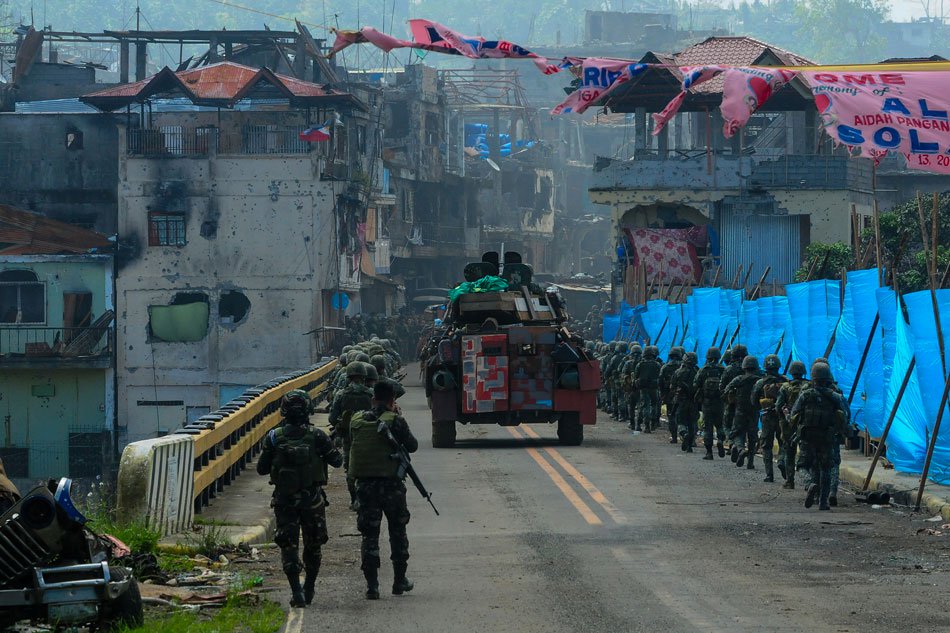
Angelica Reyes, president of the youth-centered party Kabataan, is among those who believe “cleaning” the ROTC at this point is essentially impossible. Her group, which has long criticized the program, filed a bill at the House of Representatives in August 2016 calling for its removal from the National Service Training Program altogether.
“Even if ROTC is no longer mandatory, there are still physical abuses, harassment, and verbal abuse,” she said in a mix of English and Filipino. “We also don’t like their concept of nationalism. There’s a difference between nationalism and blind obedience. ‘Obey and [don’t] complain’? I don’t think that’s nationalism. What we need are youths who can think critically.”
Calvin Almazan, a former student council member at UST senior high school, is also in the anti-mandatory camp. The incoming college freshman attended a Senate hearing in April, where he became even more convinced that ROTC’s reimposition will be a recipe for further abuses.
“There are a lot of documented violent incidents during ROTC because that’s the culture taught by the military,” he said. “If these cases are present [when it’s only optional], there will be more like it when there are more people studying ROTC.”
Almazan also believes there’s a thinly veiled political element at work.
“What (DND and AFP) want to teach students is to not criticize the government, because right now there are a lot of students protesting against the administration, he said. “The only thing that this government has to worry about is its own people.”
Congresswoman France Castro of ACT Teachers Partylist also said she was concerned with the program’s potential as a tool for indoctrination.

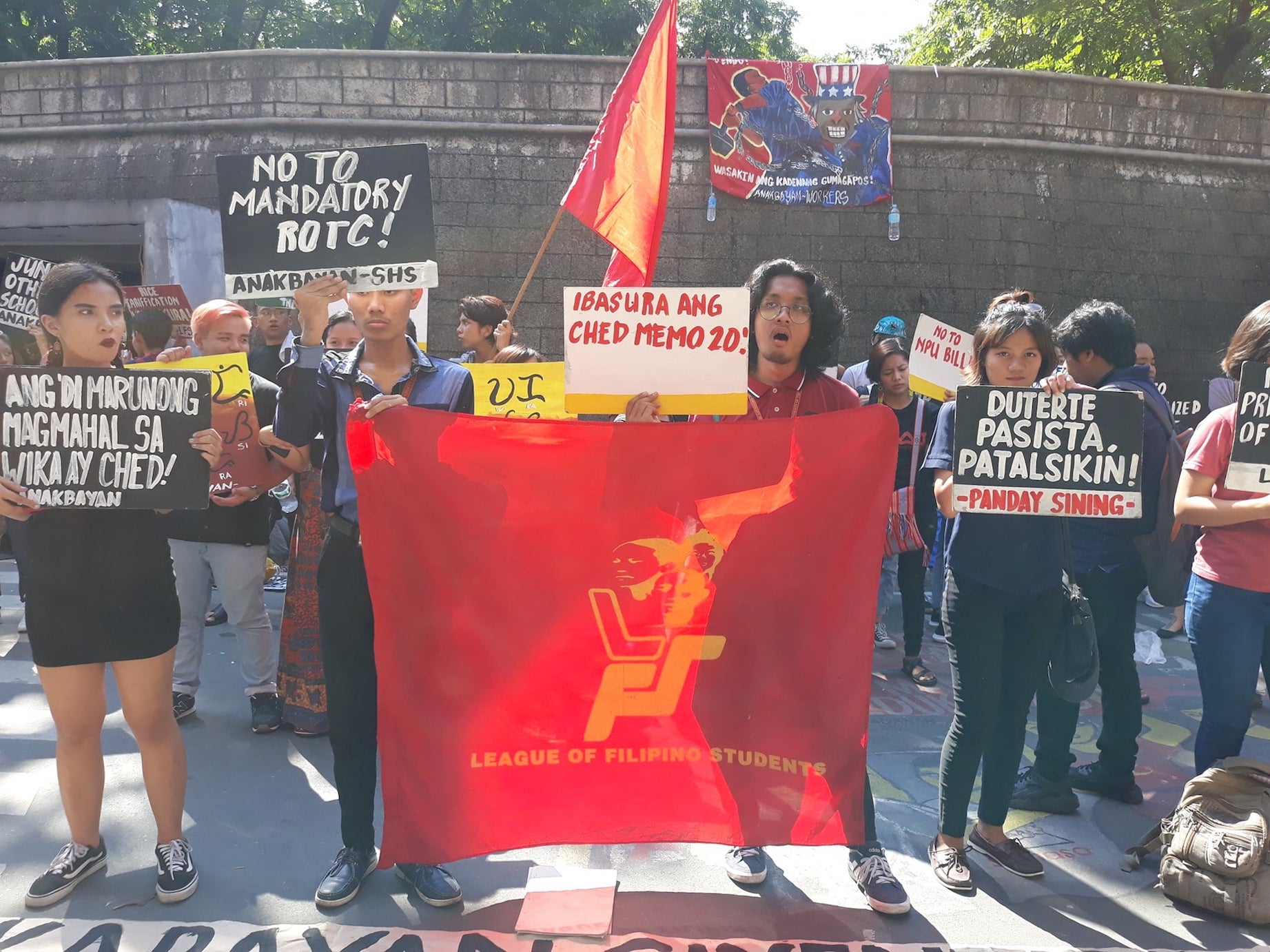
“We are not a police state,” she said in a recent interview. “We should give them (students) the freedom to decide what they want.
“They (AFP and DND) are saying that they want to teach nationalism, but they can’t even defend the West Philippine Sea. If the government wants to teach nationalism, they should improve the way they are teaching Filipino language, history, and values education.”
Congresswoman Castro further believes that making the program mandatory would violate a UN treaty protocol signed by the Philippines in September 2000 that prohibits the recruitment of those under the age of 18 for active military service. That’s a position supported by UP Vanguard, the organization currently training student officers at UP Diliman.
Senator Sherwin Gatchalian, the main sponsor of the bill in the Senate, has previously attempted to address those fears, insisting there will be no active recruitment.

“What the [UN’s] Optional Protocol prohibits is training a child and making them a reservist. But [in my proposed bill] the child is free to choose if he wants to be a reservist or not. What we’re planning to do is purely training, no enlistment,” he said at a press conference late last month.
Senator Gatchalian further believes it’s high time for the current version of the NSTP program to be put to pasture, saying that many classes taught in the non-ROTC sections are a waste of time. In some schools, as he mockingly put it, students spend time learning origami rather than “nation-building.”
(At least one UP graduate Coconuts spoke with agreed with the senator, saying the inane classes on offer were one of the reasons she chose to take up ROTC in 2009.)
Beyond patriotism, however, Senator Gatchalian said that ROTC will teach students skills that can be useful in any walk of life.
“There are disaster preparedness, disaster response [classes]. We expanded the skill sets that students can learn. These are skills needed in times of disasters,” he said. “All of these are skill sets that a person will need whether you go into the military or the private sector.”
Brig. General Arevalo expanded on that idea, telling Coconuts that reservists were not only of great help in winning 2017’s brutal Battle of Marawi, but also provided crucial medical care in the Visayas region when Typhoon Haiyan struck in 2013.
But despite offering those pragmatic examples, the general’s passion for a mandatory version of the program kept returning to a theme: shaping how young people think.
“These days, our culture is full of anarchy,” Brig. General Arevalo said. “It’s important to bring back [mandatory] ROTC because learning things like following traffic rules, respecting the elderly, respecting authority — people can obtain that from a military training program.”
Almazan, the incoming college freshman, was unconvinced.
“They want to instill discipline but what kind? Following those higher than you? That’s very feudal. We don’t want that kind of discipline. ROTC just promotes a culture of violence and blind allegiance,” he said.
“Students should be given a choice. Being forced to be nationalistic will not lead to true nationalism.”
Find all episodes of The Coconuts Podcast
